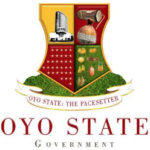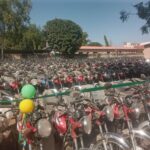By Chris Agabi & Favour Aliyu
The National Pension Commission (PenCom) says it has introduced a non-interest fund (Fund VI) and issued an operational framework for the fund to guide pension contributors and retirees.
In a publication, the pension regulatory agency said it was in furtherance of the implementation of the multi-fund investment structure which seeks to provide investment portfolio choices to pension contributors and retirees.
Explaining further, PenCom said the non-interest fund complies with the provisions of Islamic Commercial Jurisprudence and any other established non-interest principles, as approved by the Financial Regulation Advisory Council of Experts (FRACE); or any other body constituted by the Central Bank of Nigeria (CBN) and the Securities and Exchange Commission (SEC) from time to time.
The commission directed all Pension Fund Administrators (PFAs) to create and maintain the Non-Interest Fund (Fund VI) for interested Retirement Savings Account (RSA) holders.
The new package, according to PenCom, offers a viable alternative to the conventional interest-based financial instruments for pension funds investment.
NIRSAL Microfinance Bank being promoted by the Central Bank of Nigeria (CBN) has introduced non-interest loans with a live portal directed at MSMEs and financially excluded women and youth.
The apex bank is extending its non-interest window to businesses and households that have been impacted negatively by the COVID-19 pandemic.
Eligible MSMEs are those with one to five staff and verifiable evidence of business activities adversely being affected by the pandemic with evidence of job protection for its staff.
The financing limit for MSMEs is N2.5 million while the household is limited to N1m, the bank said.
Moreso, the CBN in a statement said it is boosting the financial inclusion of women and youth in selected states.
The digital financial inclusion drive scheduled to commence from Gombe State, on November 1st to 5th, 2021, is the first of six engagements expected to cut across states with high numbers of financially excluded women and youth.
The statement identified Bayelsa, Ebonyi, Jigawa, Niger, and Oyo as the other states with high populations of vulnerable financially excluded women and youths, adding that those who fall into these groups are expected to benefit from the drive throughout the rest of the year.

 Join Daily Trust WhatsApp Community For Quick Access To News and Happenings Around You.
Join Daily Trust WhatsApp Community For Quick Access To News and Happenings Around You.


